
Dental implantation and its function
Dental implants are like artificial roots of teeth which are placed into the jaw. Dental implants are giving the support for crowns, bridges and removable dentures. This is a wonderful solution, because we can implant the artificial root into the place of the lost tooth thus after healing it can take over the original function.
Usually it is hard to tell the difference between the original tooth and the implant supported crowns.
Replacing the missing teeth by means of implant dentistry will provide you better comfort, esthetics and harmony of your face with better function in smiling, chewing and biting.
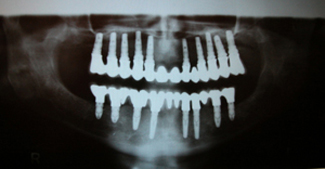
Advantages of implant dentistry
- Single tooth replacement: no need to file off the neighbouring healthy teeth when preparing them for bridge work.
- Over 98% of implant placement is succesful.
- Missing molars: if there is free end e.g. no molars on the far back, it is impossible to make a bridgework and in conservative dentistry the only possible solution is removable partial denture. With implant dentistry it is still possible to make a fixed bridgework most of the times.
- In the situation of the completely edentulous jaws, after a certain period of time the removable complete dentures become loose. Thus it is moving and it’s difficult to bite, chew and talk with them even when lots of denture glue is used. With implant supported dentures, the function could be back to normal again.
- Missing neighbouring teeth: with a couple of implants a partial bridgework can restore the function.
- In optimal circumstances, implant supported dental works can work against the bone resorption of the edentulous jaws.
- With better function and stable bridgework and dentures can give you more self confidence and success in your interpersonal relationship.
- You can possible avoid to use removable dentures which by some is considered to be the sign of the old age.
Material of implants
In human body we can place only those materials that will not cause any local or general disease and will not be rejected by the body itself.
Implants are made of titanium, that doesn’t cause any allergic reaction, and is accepted by the body.
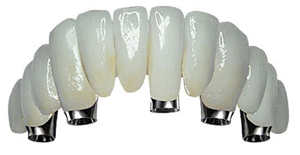
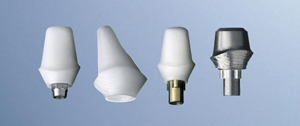
Who can get dental implants?
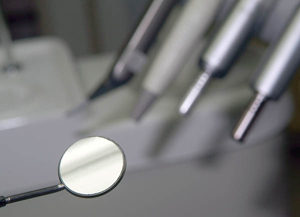 The main indication for dental implant is the lack of teeth.
The main indication for dental implant is the lack of teeth.
There are some relative contraindications which has to be judged individually:
- uncontrolled diabetes mellitus
- previous bisphosphonate therapy for ostheoporosis
- cytostatic therapy for various diseases (cancer, rheumatoid arthritis etc.)
- heavy smoking
- bleading disorders
- previous radiotherapy for the jaws or neerby regions.
Of course we wouldn’t place an implant into the mouth with serious acute paradontitis, neglected oral hygiene carious teeth, dental calculi etc. These problems have to be dealt with prior to implant surgery.
We need to see the patients and their x-rays before we can give a decent quotation.
The risk of implant surgery
Most of the implants are placed in local anaesthesia, thus with a decent medical history most of the adverse reactions, regarding local anaesthetics can be avoided.
When placing the implants it is theoretically possible to injure neighbouring structures like the inferior dental nerve, the sinus cavity, neighbouring roots. With the right technique and planning these risks are usually minimal.
Implant rejections are relatively low in approximatelly 2% of the cases.
The secret of longterm implant survival is the right planning and regular check ups, good oral hygiene.
Steps of implant surgery
After local anaesthesia we rise a mucoperiosteal flap and with the implant drills we set the right depths and diameter of the hole where we will screw the implant in.
Following this we usually suture the flap back to it’s place with dissolving interrupted stitches.
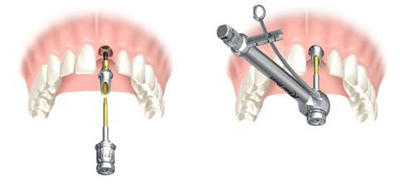
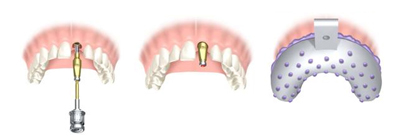
Pre-and postoperative instructions
We usually advice the patients to have their teeth cleaned , scaled and polished cavities filled, infected roots removed, acute gingival inflammations managed. Prior to the operation we suggest to take the first those of antibiotics and to rinse thoroughly with some antiseptics.
Following the implant surgery it is normal to anticipate some increase pain and swelling of the face and also inside the mouth in the first three days. Bruising could also be normal. Regular painkillers might be necessary. We recommend our patients to keep the affected region be cold by icebags. We somtime suggest to take regular antibiotics. If we have to remove stitches usually do it in 7-10 days after the operation.
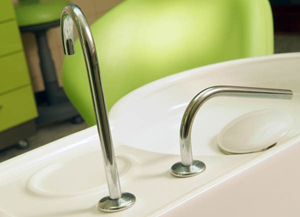
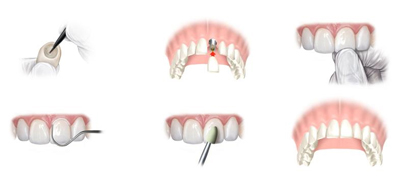
There are few things you should know about implants based crowns/bridges
- The most important thing is dental hygiene. You have to pay attention on even more from this time. You may need special tools (like floss, or thiny brush that goes between the crowns) according to the type of solution.
- Your dentist will explain and show you how to clean your new teeth on the day of fitting.
- In the manner of long term use of your new teeth, it is adviced to appear on regular check up in every 6-12 months.
- The long term success of implant based crowns / bridges mostly depends on You and the carried out hygiene. The dentist’s responsibility lasts till the fitting.
- To avoid any inflamation around the implants, perfect mouth hygiene is nessecary wich is also responsible for rejection of implants.
